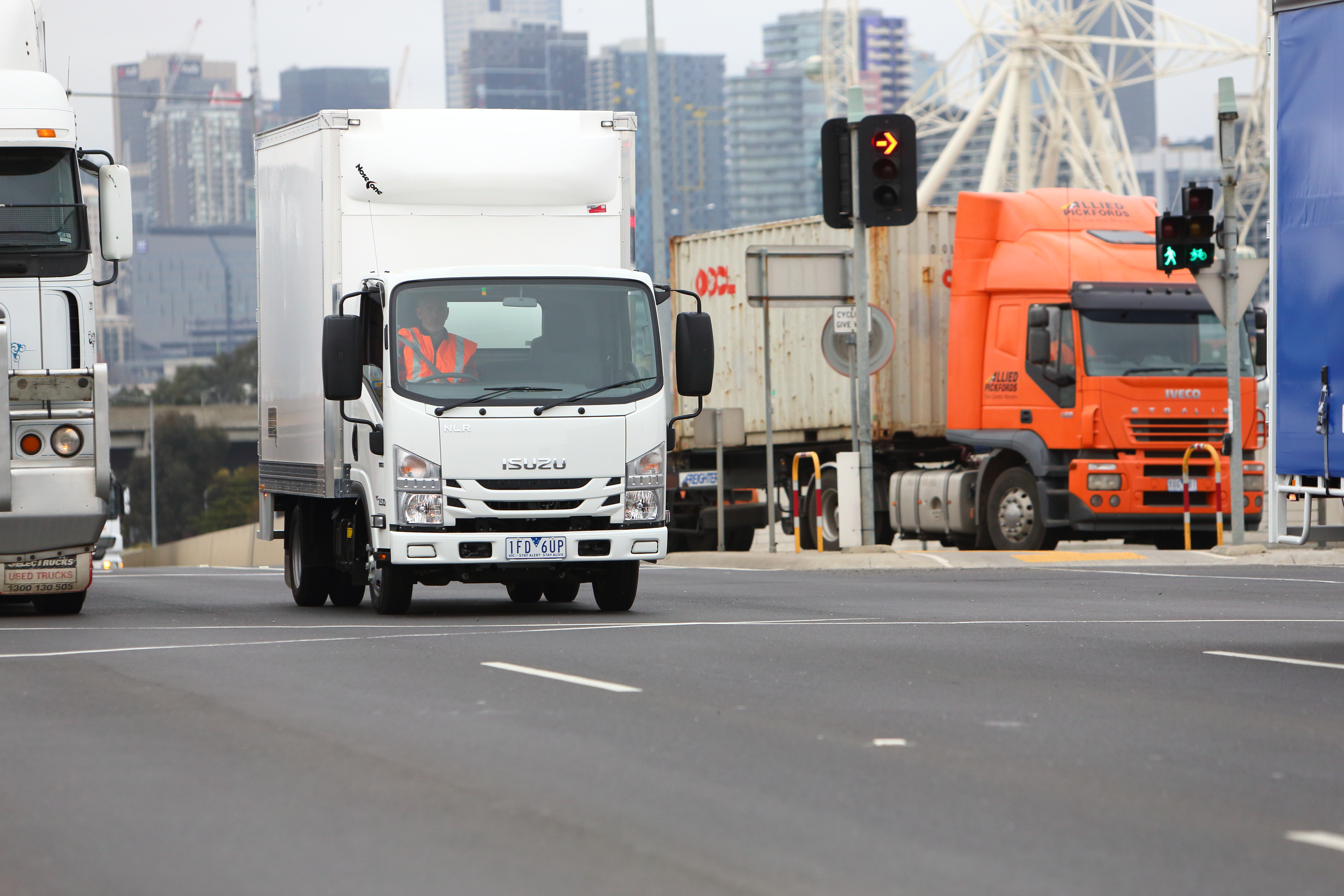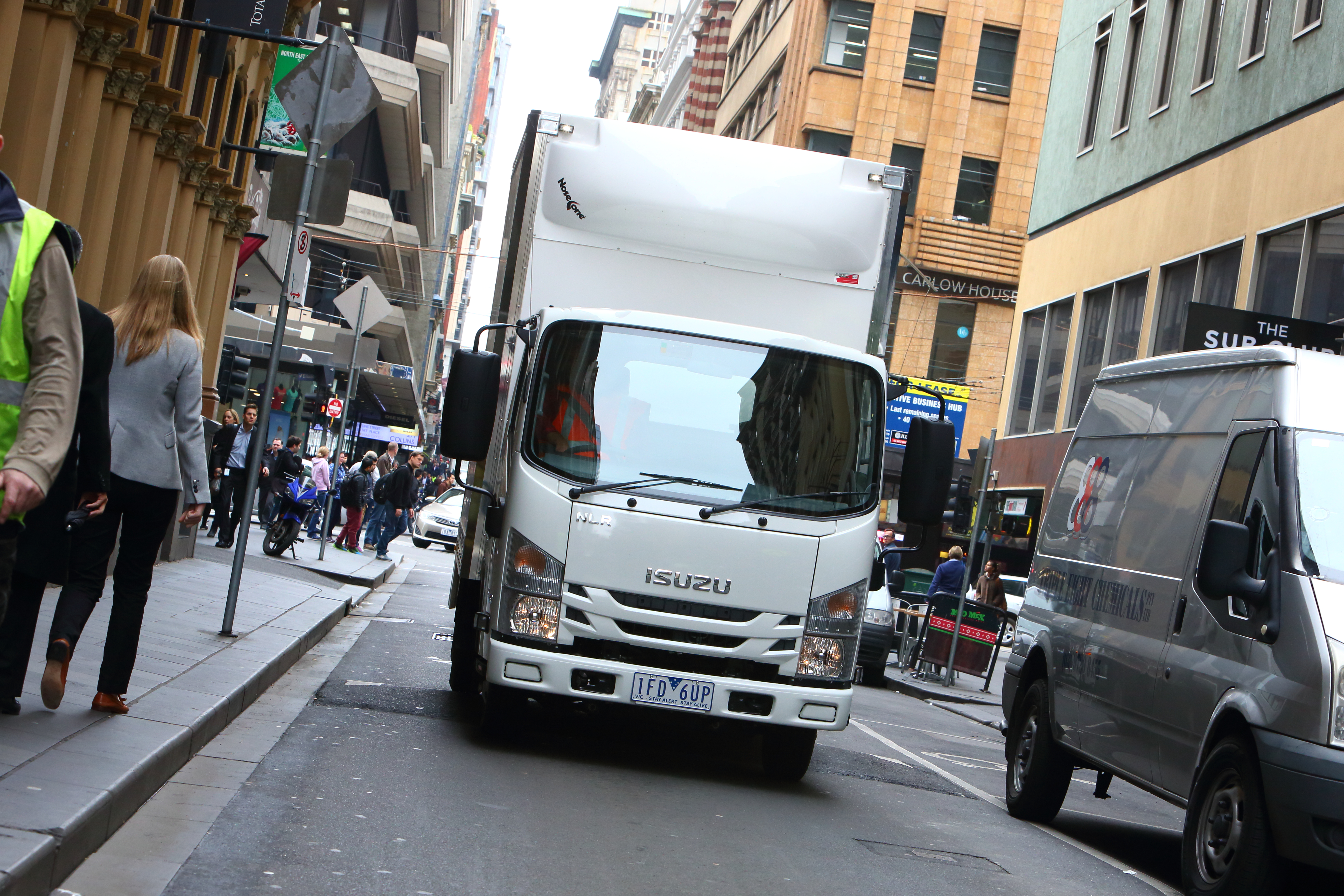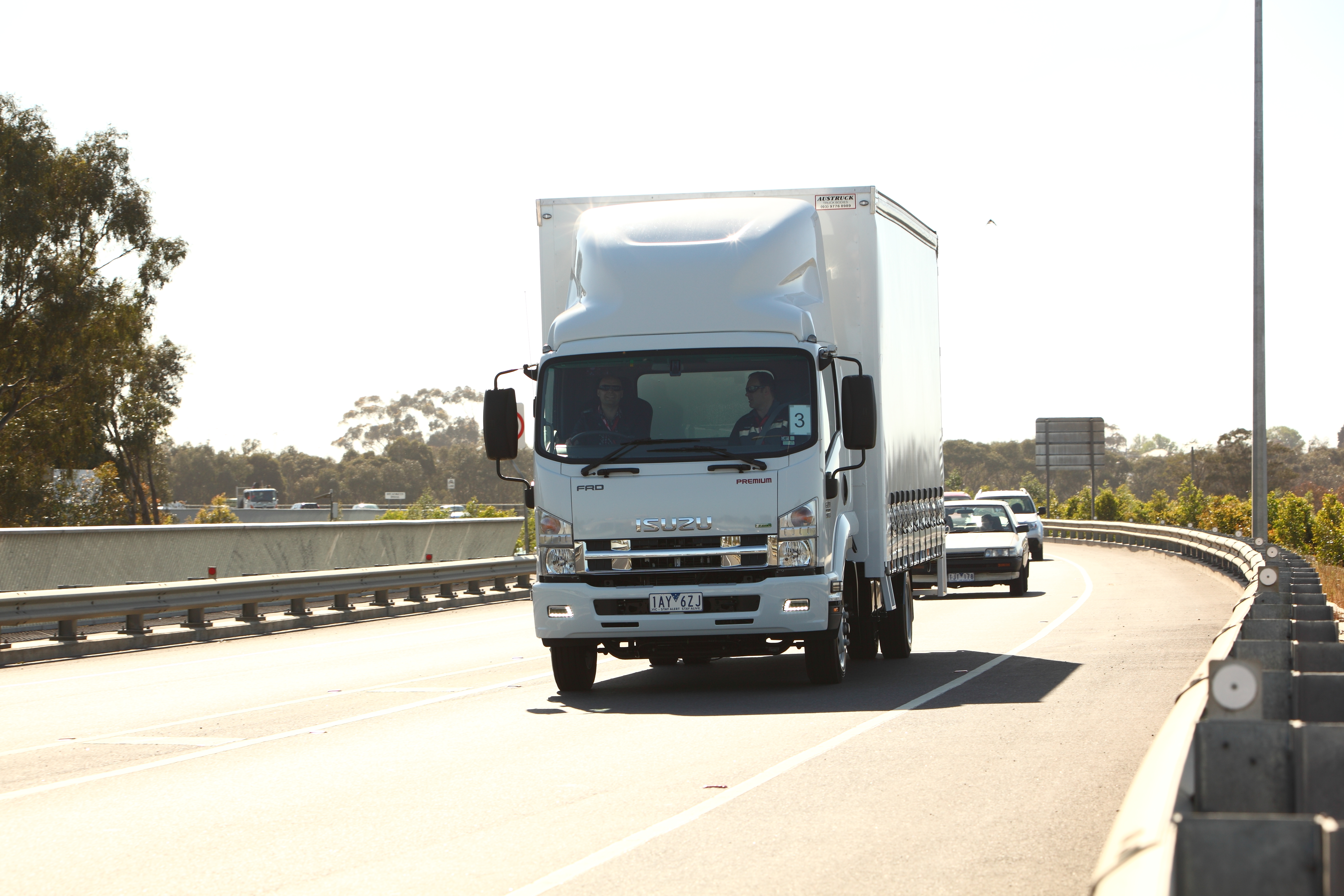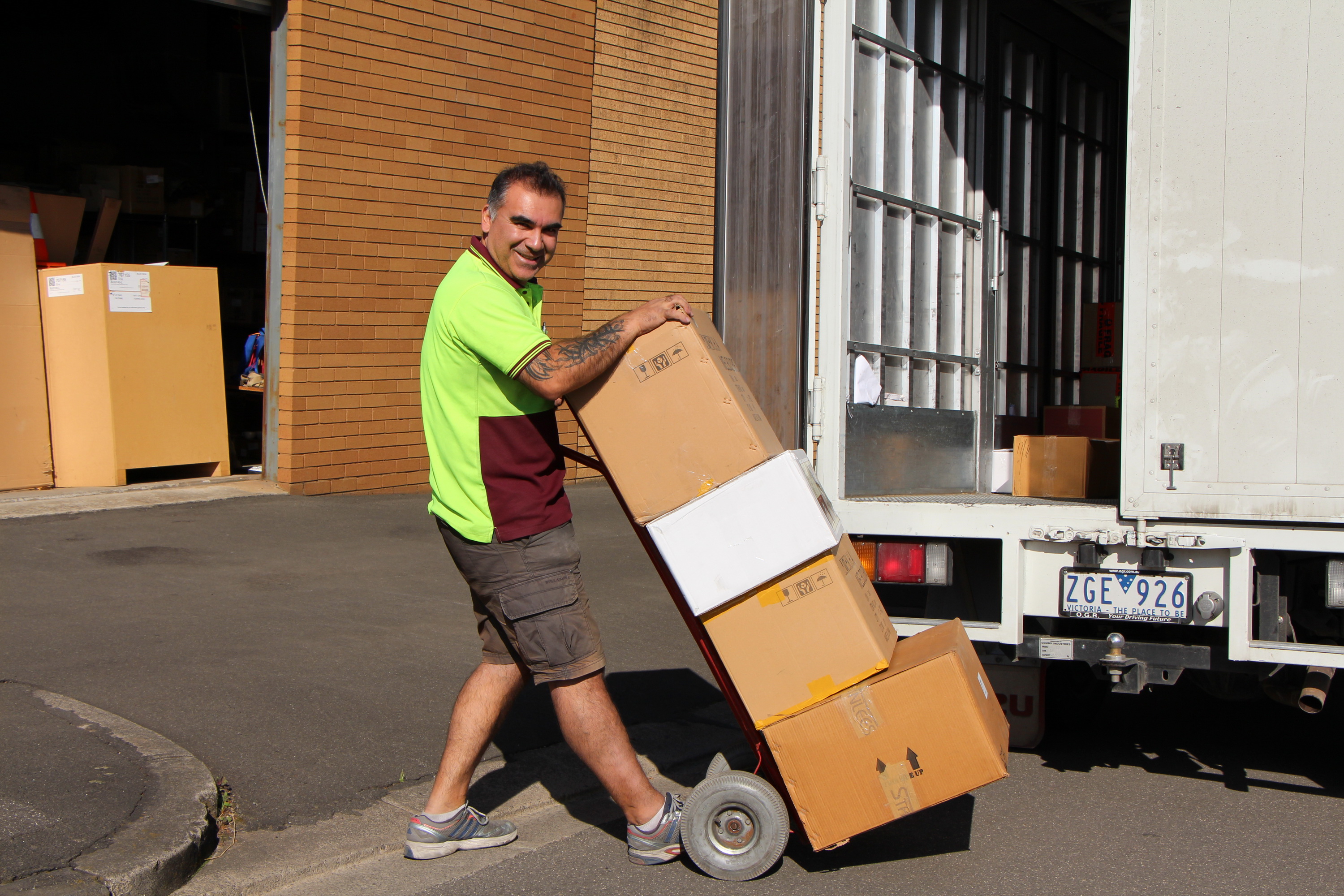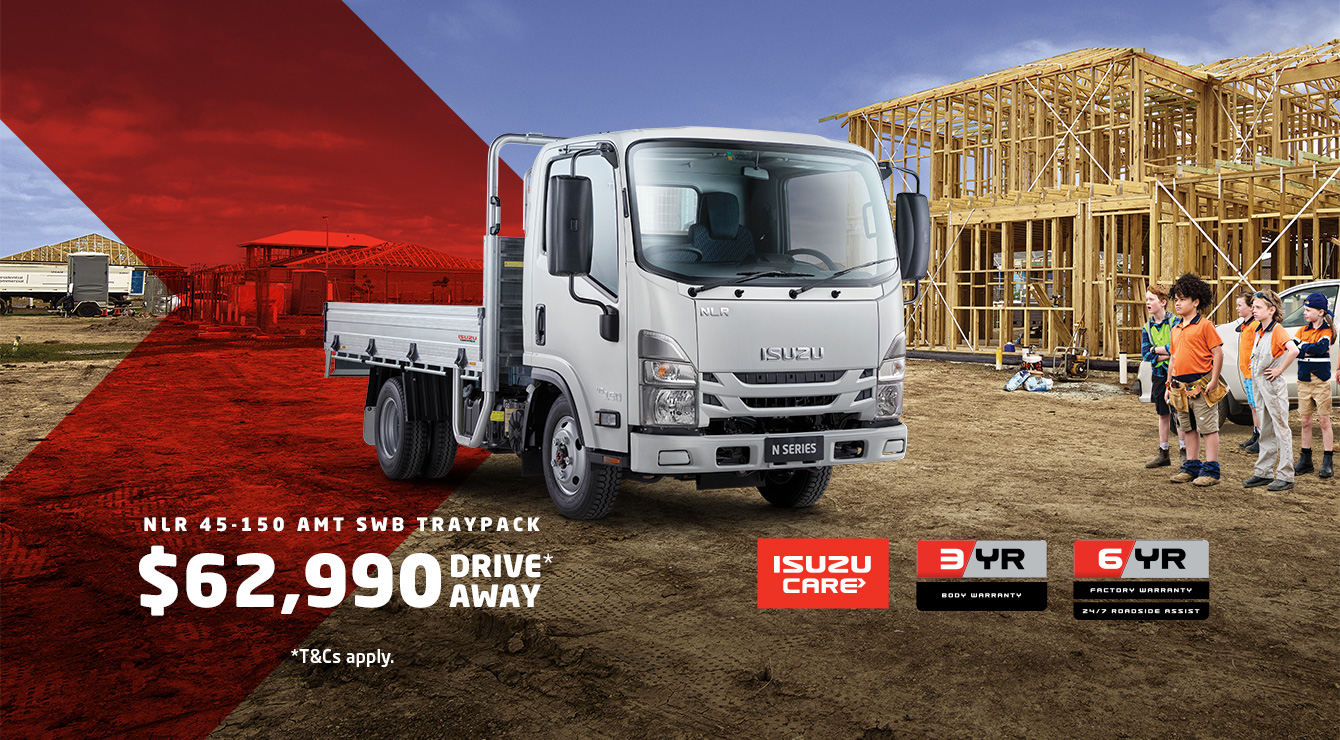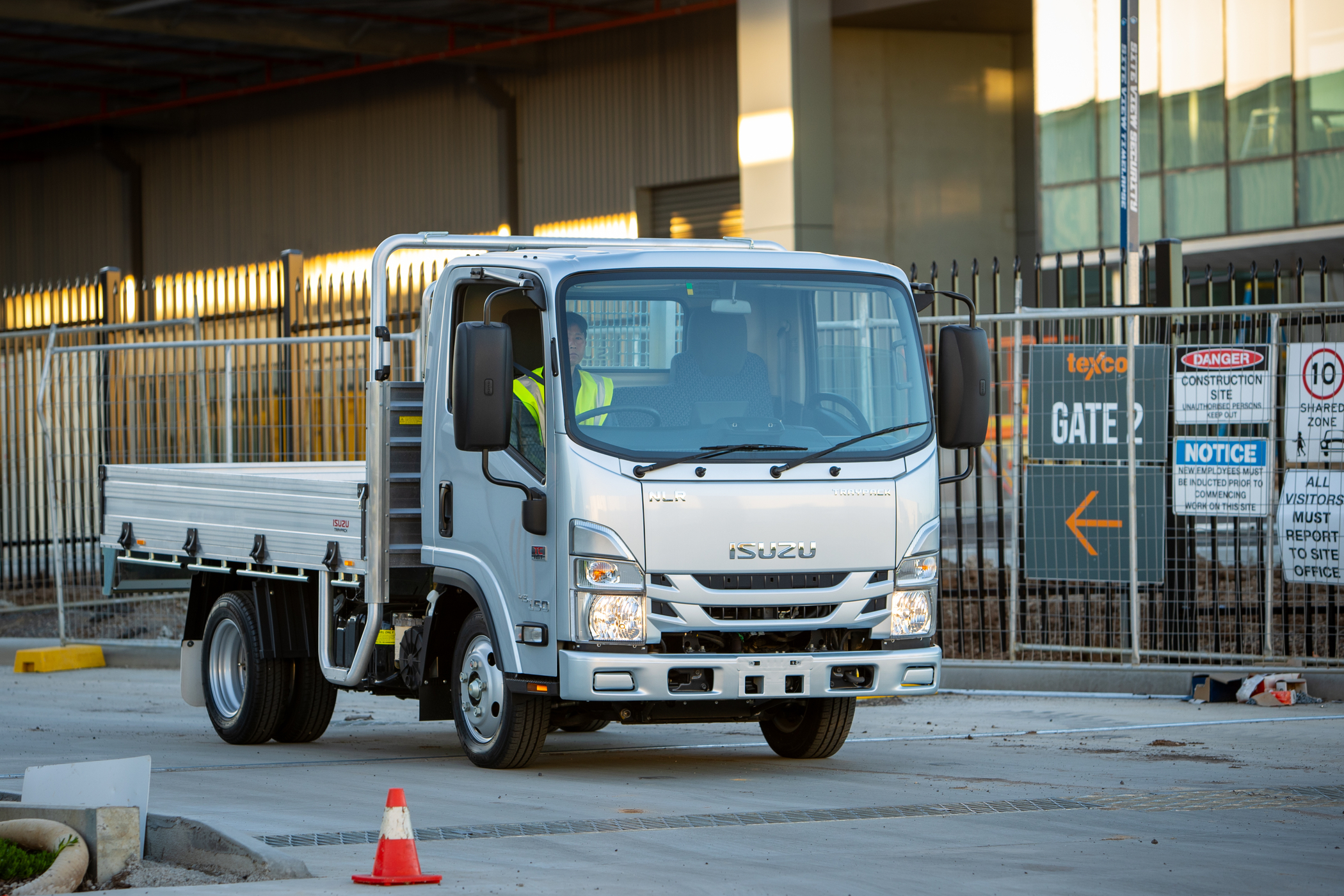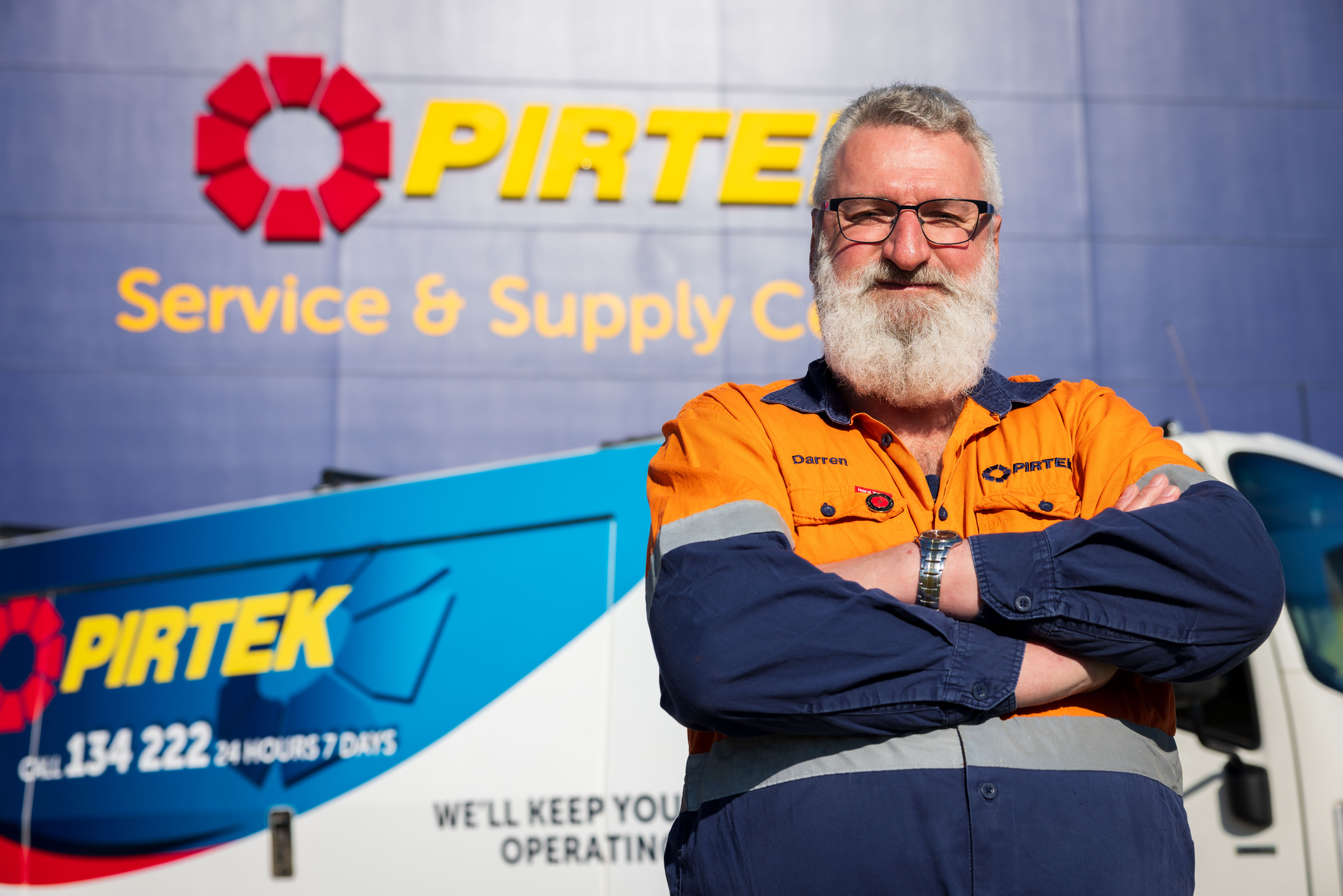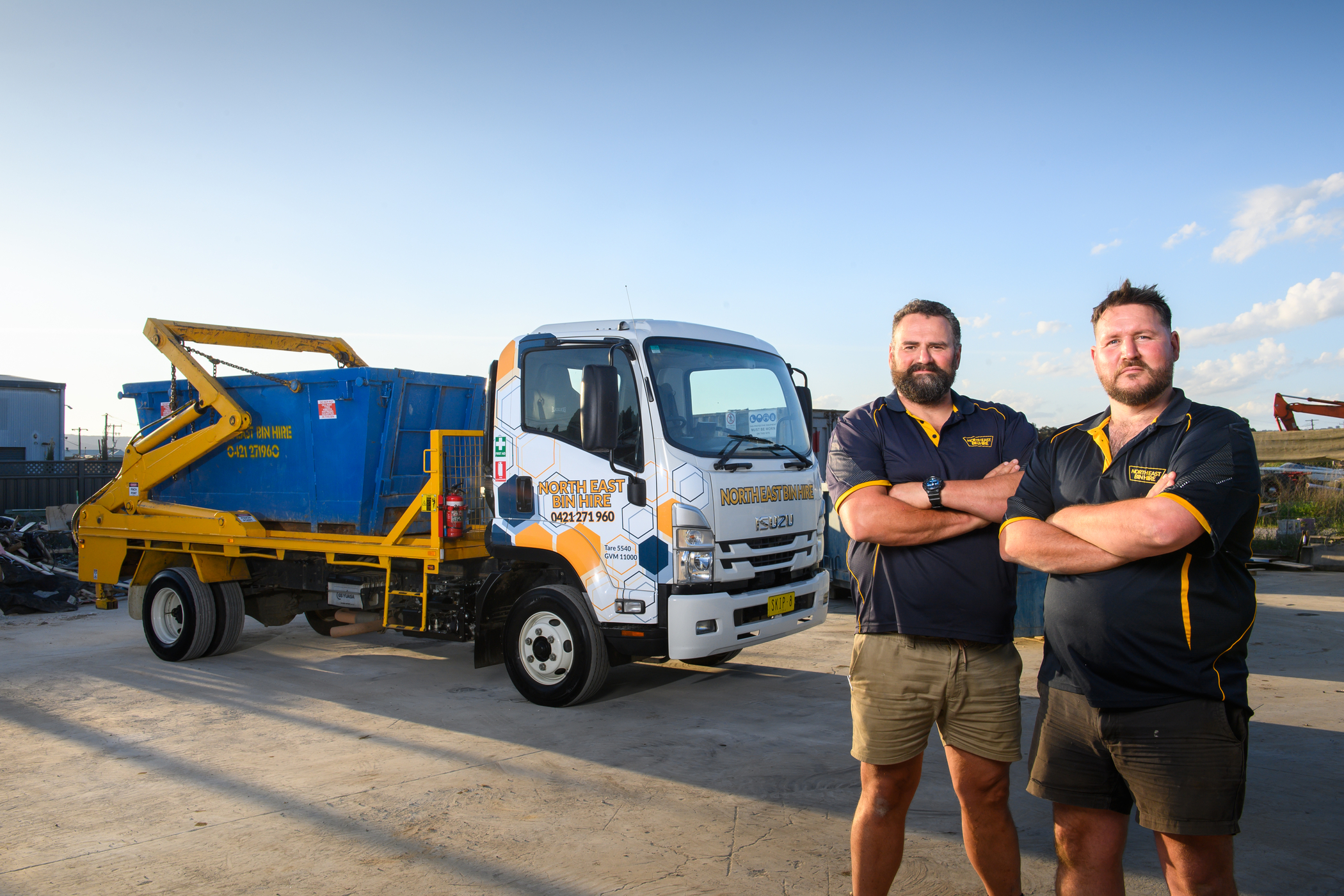[image_gallery][/image_gallery]
A recurring theme in news stories about today’s logistics and road transport industries is coverage of companies removing humans from some, if not all, aspects of the supply chain.
There’s no denying that the industry is in a state of flux, but Isuzu Australia Limited (IAL) Director and Chief Operating Officer, Phil Taylor, believes transport operators shouldn’t get sucked in by the hype surrounding vehicle automation.
“Presently, the media coverage of our industry seems to focus on very controlled demonstrations that are often hailed as the future of freight transport,” Mr Taylor said.
“But these stories always carry the same caveat: all these technological advances are entirely subject to regulatory approval, and that approval would need to occur in many different jurisdictions for the technology to be of use to any large-scale consumer base.”
Citing the
Society of Automotive Engineers’ (SAE) widely adopted standards of vehicle autonomy which run from 0 (no automation) to 5 (full automation), Mr Taylor cautioned that Australian vehicles had a long way to go, and the logistics industry shouldn’t get too far ahead of itself.
“The vehicles on our roads are currently hovering around SAE level 2 or below, and they’re going to stay there for a while too,” he said.
“Technology can keep increasing at an exponential rate, but there’s no computer chip in the world able to speed up the bureaucratic process.”
The back and forth around regulating autonomous vehicle technology is likely to create administrative gridlock when the issue is seriously put on the agenda.
The prospect of self-driving trucks crisscrossing our nation’s road network may have rightly captured the public’s imagination, but the image of the science-fiction-movie driverless car conjured by the word ‘automation’ will not be the norm for many years yet.
While industry futurists – fueled by a steady stream of
tech blog content and snappy product demonstration videos – hypothesise about what might be in decades to come, another shift has blindsided some transport and logistics operators. And its effects are having a massive impact on the logistics sector right now.
Today’s transport industry operators need to find an effective response to the tidal wave of Business to Consumer (B2C) trade.
Mr Taylor said the shift towards B2C requires a thorough rethink of road freight transport.
“In days past, the transport of goods was being carried out primarily under the Business to Business (B2B) model and, as such, required a traditional, mass-scale transport solution,” he said.
“Operators would pick up goods from a manufacturer, drop them to a wholesaler. Another truck would load up the goods and take them to a brick and mortar retail store.
“That model, while still accounting for the majority of consumer spending in Australia today, is increasingly being challenged by B2C trade, where companies are selling products directly to the end user.”
The big driver of this change is the proliferation of e-commerce.
Australians spent more than $21 billion dollars online in 2016 and, year over year, national online spending grew 10.4 per cent during the same period. What’s more, 2017 looks like an even bigger year for online transactions.
Amazon, the world’s largest online retailer, is taking steps towards establishing distribution sites as a base for an Australian operation.
Analysts predict this Australian arm could grow into a $3-4 billion business that accounts for 1 per cent of the nation’s entire retail spend.
While the spectre of automation is presented as a threat to the livelihood of operators in the transport and trucking industries, the massive upheaval of consumer spending behavior represents the most pertinent risk. It also offers the largest opportunity for trucking operators who have a vehicle out on the road today.
“A business model that worked well in the past won’t be enough to keep transport operators competitive when people are flocking towards e-commerce in droves. The transport industry needs to become more agile to capitalise on the opportunities presented in the B2C age,” Mr Taylor said.
“Operators need to consider how that agility can be factored in to every aspect of their business.”
The B2C revolution empowers customers by giving them a wider range of products at their fingertips than ever before, and, as a by-product of this, the consumer is increasingly expecting products and services to be personalised and delivered to them at a time and location convenient to them.
In such a consumer-focussed climate of immediacy, the market will not tolerate an inflexible business model.
Operators should consider innovative approaches to meeting customers’ needs. New services that more efficiently distribute the products of vendors choosing to circumvent the traditional sales model are going to become increasingly important in the B2C age.
“This is something that’s happening already – major transport operators are adapting their business models in response to B2C trade to try and stay ahead of the curve,” Mr Taylor said.
“By offering innovative logistics solutions, these transport operators are increasing the attractiveness of B2C selling for both business and consumer. This, in turn, will only accelerate the uptake of B2C trading.”
Large transport operators are reporting successes with trialling pop-up delivery hubs – designed to make it easier and more efficient for consumers and micro businesses to send and receive parcels. Operators are also increasingly looking at initiatives bolstering fleets during peak periods like Christmas, so delivery times don’t blow out, or harnessing mobile technology to give consumers more control and vision over their parcel’s journey.
“It’s vital that transport operators are thinking about factors such as these, asking themselves the question, ‘how are our customers’ needs changing?’, and investing in the processes required to make their business stand out from the pack,” Mr Taylor said.
The B2C climate is also having a major impact on how transport operators approach the ‘last mile’ of freight transport.
Despite consumers’ general unwillingness to pay more for expedited shipping services, they still expect higher service levels and want the option for same-day or overnight delivery.
These factors all illustrate the importance of companies investing in a logistics strategy that prioritises vehicle maximisation.
Technology will continue to help companies provide last mile visibility, control, and flexibility for their customers but technology on its own is only a tool. Effective business strategies are what will ensure your company’s success in the B2C environment.
“The companies that flourish in the current climate aren’t just the ones with the processes in place, but also the right people representing their brand,” Mr Taylor said.
“If you’ve ordered something online, the only human you’re going to see in relation to that purchase is the delivery driver who shows up on your doorstep.”
While it may seem peripheral to the truck driver who’s out on the road day after day, customer service is now an integral part of their job.
Operators should consider how they approach customer service training to gain a competitive edge in the marketplace.
There’s no denying the B2C commerce revolution has placed a weighty onus on businesses to carefully re-examine every aspect of their operation. And this presents clear challenges – certain members of the transport industry may feel threatened by the vastness of the changes accruing before their eyes. But as much as it has disrupted the transport industry’s status quo, B2C commerce has created a litany of exciting opportunities for logistics companies.
If savvy operators can separate futuristic fiction from the fact of tomorrow and identify these opportunities, they stand poised to thrive in the modern logistics market.
